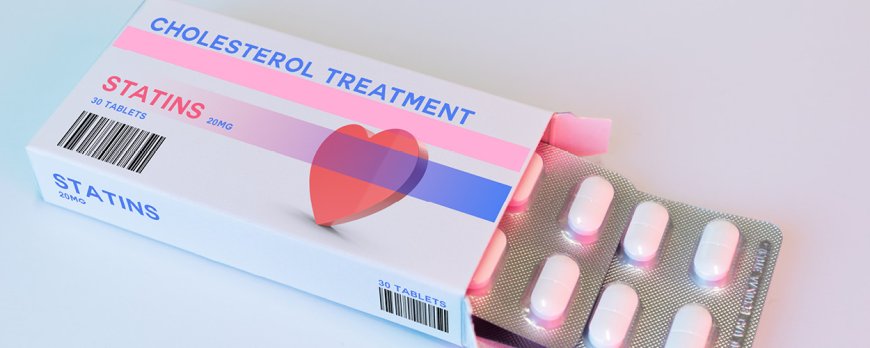CoQ10 for heart health
Explore the benefits of CoQ10 for heart health. Learn how this vital supplement supports cardiovascular function and overall wellness.

CoQ10 for Heart Health
CoQ10 is a vital supplement that can greatly contribute to heart health and overall well-being. It is an antioxidant that is naturally produced by the body and plays a crucial role in maintaining cardiovascular function. However, as people age or have certain conditions like heart disease or take cholesterol-lowering drugs, their CoQ10 levels may decrease. While CoQ10 can be found in certain foods, dietary sources may not provide sufficient levels to significantly increase CoQ10 levels in the body. This is where CoQ10 supplements come into play, offering a convenient and effective way to support heart health.
Key Takeaways:
- CoQ10 is an antioxidant naturally produced by the body and plays a vital role in maintaining heart health.
- As people age or have certain conditions, their CoQ10 levels may decrease, making supplementation necessary.
- CoQ10 supplements can help prevent or treat certain heart conditions, such as congestive heart failure, and improve overall cardiovascular function.
- There is potential for CoQ10 to reduce LDL cholesterol levels in people with diabetes and alleviate muscle weakness and pain associated with statin use.
- While research on the effectiveness of CoQ10 for conditions like Parkinson's disease and migraines is mixed, it remains an area of ongoing study.
CoQ10 supplementation is generally safe, but it is important to take it under the supervision of a healthcare professional. Mild side effects may include digestive problems, headaches, and fatigue, while more serious side effects are rare. It is also crucial to be aware of potential interactions with certain medications, such as blood thinners. Further research is needed to determine the optimal dosage for CoQ10 supplementation. While CoQ10 can be obtained from dietary sources like organ meats, fatty fish, meat, soybeans, vegetables like broccoli, and nuts and seeds, supplementation may be necessary for individuals with specific health conditions or inadequate dietary intake.
Overall, CoQ10 is a valuable supplement that can be beneficial for heart health and overall wellness. It is important to consult with a healthcare professional to determine if CoQ10 supplementation is right for you and to receive guidance on dosing and usage.

Understanding CoQ10 and Its Role in Heart Health
Coenzyme Q10, or CoQ10, is an antioxidant that is naturally produced by the body and plays a crucial role in supporting heart function and overall cardiovascular health. As an antioxidant, CoQ10 helps neutralize harmful free radicals and protects the cells from oxidative stress. It is particularly important for the heart, as it helps generate energy and ensures the proper functioning of cardiac muscles.
However, as people age or have certain conditions like heart disease or take cholesterol-lowering drugs, their CoQ10 levels may decrease. This can potentially impact heart health and overall well-being. While CoQ10 can be found in certain foods, such as organ meats, fatty fish, and vegetables like broccoli, dietary sources may not provide sufficient levels to significantly increase CoQ10 levels in the body. Therefore, CoQ10 supplementation may be necessary for individuals with specific health conditions or inadequate dietary intake.
CoQ10 supplements are available in various forms, including capsules, tablets, and softgels. They are commonly used to prevent or treat certain heart conditions, such as congestive heart failure, and may also have potential benefits for reducing LDL cholesterol levels in people with diabetes. Additionally, CoQ10 supplementation may help ease muscle weakness and pain associated with the use of statin medications.
Importance of CoQ10 for Heart Function
- CoQ10 is essential for energy production in the heart.
- It supports overall cardiovascular function and helps maintain a healthy heart rhythm.
- CoQ10 supplementation may help reduce the risk of heart conditions and improve cardiac health.
It is important to note that while CoQ10 shows promise in certain areas, research on its effectiveness for conditions like Parkinson's disease and migraines has yielded mixed results. Further studies are needed to fully understand its potential benefits in these areas.
In terms of safety, CoQ10 is generally well-tolerated when taken as directed. Mild side effects may include digestive problems, headaches, and fatigue, but these are usually temporary. Serious side effects are rare. However, it is important to consult with a healthcare professional before starting CoQ10 supplementation, especially if you are taking any medications. CoQ10 may interact with certain drugs, such as blood thinners, and may require dosage adjustments.
In conclusion, Coenzyme Q10 plays a vital role in supporting heart function and overall cardiovascular health. While it can be obtained from dietary sources, supplementation may be necessary for individuals with specific health conditions or inadequate dietary intake. CoQ10 supplements offer a convenient and effective way to maintain optimal CoQ10 levels and support heart health. Consult with a healthcare professional to determine the appropriate dosage and usage of CoQ10 for your specific needs.
CoQ10 Deficiency and the Need for Supplementation
As people age or face certain health conditions, such as heart disease, their natural CoQ10 levels may decrease, highlighting the need for supplementation to support cardiovascular health. Coenzyme Q10 (CoQ10) is an antioxidant that plays a crucial role in maintaining heart health. However, factors like aging, certain health conditions, and medication use can lead to CoQ10 deficiency.
Dietary sources of CoQ10, such as organ meats, fatty fish, meat, soybeans, vegetables like broccoli, and nuts and seeds, may not provide sufficient levels to significantly increase CoQ10 levels in the body. In such cases, CoQ10 supplements can be a valuable option. By choosing a high-quality CoQ10 supplement, individuals can effectively address these deficiencies and support their cardiovascular wellness.
When considering CoQ10 supplementation, it is essential to consult with a healthcare professional who can determine the appropriate dosage and assess the individual's specific needs. A doctor can also provide guidance on potential interactions with medications, as CoQ10 may interact with certain drugs, such as blood thinners.
In conclusion, CoQ10 deficiency can occur due to various factors, leading to potential cardiovascular health issues. While dietary sources of CoQ10 are available, supplementation with high-quality CoQ10 supplements can be beneficial, especially for individuals with specific health conditions. It is crucial to consult with a healthcare professional to determine the optimal dosage, address any potential interactions, and ensure the safe and effective use of CoQ10 for heart health.
Benefits of CoQ10 for Heart Health
CoQ10 has been shown to provide significant support to heart health by preventing and treating various heart conditions and enhancing cardiovascular function. As an antioxidant, CoQ10 helps neutralize harmful free radicals in the body, reducing oxidative stress and inflammation, which are key factors in the development of heart disease.
One of the main benefits of CoQ10 is its ability to improve heart muscle function. It helps strengthen the heart muscle, enabling it to pump blood more effectively and efficiently. This can help prevent or treat conditions like congestive heart failure, where the heart's pumping ability is weakened.
In addition to improving heart function, CoQ10 has also been found to have a positive impact on cholesterol levels. Studies have shown that CoQ10 supplementation can help reduce LDL cholesterol levels, particularly in individuals with diabetes. By lowering LDL cholesterol, CoQ10 can help reduce the risk of plaque buildup in the arteries and improve overall cardiovascular health.
Furthermore, CoQ10 has been found to have potential benefits in reducing the muscle weakness and pain associated with the use of statin medications, which are commonly prescribed for cholesterol management. CoQ10 supplementation can help replenish the depleted levels of CoQ10 caused by statins and provide relief from these side effects.
Summary:
- CoQ10 prevents and treats various heart conditions and enhances cardiovascular function.
- It strengthens the heart muscle and improves its pumping ability, particularly in cases of congestive heart failure.
- CoQ10 lowers LDL cholesterol levels, reducing the risk of plaque buildup and improving overall cardiovascular health.
- It can help reduce muscle weakness and pain caused by statin medications.

CoQ10 and Cholesterol Levels
CoQ10 supplementation may play a role in reducing LDL cholesterol levels in individuals with diabetes, with additional benefits for those experiencing muscle weakness and pain caused by statin medications. Some studies suggest that CoQ10 can help reduce LDL cholesterol and increase HDL cholesterol, resulting in a more favorable cholesterol profile. This is particularly beneficial for individuals with diabetes, as they are at a higher risk of developing heart disease.
In addition to its potential cholesterol-lowering effects, CoQ10 supplementation may also alleviate the muscle weakness and pain experienced by some individuals who take statin medications to control cholesterol levels. Statins can deplete CoQ10 levels in the body, leading to these side effects. By supplementing with CoQ10, individuals may be able to mitigate these adverse effects and maintain better muscle health.
However, it is important to note that the research on the efficacy of CoQ10 for cholesterol management and statin-associated muscle pain is limited, and more studies are needed to fully understand the extent of its benefits. Additionally, individual responses to CoQ10 supplementation may vary, and it is recommended to consult with a healthcare professional for personalized dosage recommendations and advice on incorporating CoQ10 into a comprehensive management plan for cholesterol and overall heart health.
Other Potential Benefits of CoQ10
While CoQ10 shows promise in managing conditions like Parkinson's disease and migraines, the research findings have been inconclusive, emphasizing the need for more comprehensive studies.
Coenzyme Q10 (CoQ10) is a naturally occurring antioxidant that plays a crucial role in maintaining heart health. As people age or have certain conditions like heart disease, their CoQ10 levels may decrease. Dietary sources of CoQ10 include organ meats, fatty fish, meat, soybeans, vegetables like broccoli, and nuts and seeds. However, for individuals who do not obtain adequate CoQ10 from their diet or have specific health conditions, CoQ10 supplements may be recommended.
CoQ10 supplementation has been studied for its potential benefits in managing conditions such as Parkinson's disease and migraines. While initial research suggests a positive correlation, further studies are needed to validate these findings. CoQ10 supplements may help improve symptoms and provide relief, but it is important to consult with a healthcare professional before starting any new supplementation regimen.
It is worth noting that CoQ10 is generally safe to use, with mild side effects like digestive problems, headaches, and fatigue being reported in some cases. However, more serious side effects are rare. It is crucial for individuals taking CoQ10 to be aware of potential interactions with medications, particularly blood thinners, and consult with their healthcare provider to ensure it does not interfere with other treatments or medications they may be taking.
Safety and Side Effects of CoQ10
CoQ10 is generally safe to use, but it is advised to seek guidance from a healthcare professional to ensure its suitability and discuss any potential interactions with medications. Mild side effects may include digestive problems, headaches, and fatigue, while more serious side effects are rare. It is important to note that CoQ10 supplements may interact with certain medications, such as blood thinners, and may affect their effectiveness or increase the risk of side effects.
If you are taking any medications or have underlying health conditions, it is crucial to consult with your doctor before starting CoQ10 supplementation. They can provide personalized recommendations based on your medical history and medication regimen, ensuring that CoQ10 will not interfere with your treatment or cause any adverse effects.
In addition, if you experience any unusual symptoms or side effects after starting CoQ10 supplementation, it is important to contact your healthcare professional immediately. They can assess your situation and determine if any adjustments need to be made to your dosage or treatment plan.
CoQ10 Interactions with Medications:
- Blood thinners: CoQ10 may interact with blood thinners, such as warfarin, increasing the risk of bleeding. It is important to monitor your blood clotting levels regularly and inform your doctor if you are taking CoQ10.
- Chemotherapy drugs: CoQ10 may interfere with certain chemotherapy drugs, potentially reducing their effectiveness. If you are undergoing cancer treatment, discuss the use of CoQ10 with your oncologist.
- Statins: Some studies suggest that CoQ10 can help alleviate muscle weakness and pain associated with statin use. However, it is important to consult with your doctor before combining CoQ10 with statin medications to ensure safety and effectiveness.
- Diabetes medications: CoQ10 may lower blood sugar levels, so it is important to monitor your blood sugar levels closely if you are taking diabetes medications along with CoQ10.
Remember, always consult with a healthcare professional before starting any new supplement or medication to ensure its safety and effectiveness for your specific health needs.

Optimal Dosage and Usage of CoQ10
Finding the optimal dosage of CoQ10 for heart health requires individualized considerations and consultation with a healthcare professional. While there is no standard dosage for CoQ10 supplementation, several factors are taken into account to determine the appropriate amount.
Here are some key factors to consider:
- Age: CoQ10 levels naturally decline with age, so older individuals may require higher doses.
- Health Conditions: Certain conditions like heart disease or diabetes may necessitate higher doses of CoQ10 to address specific deficiencies.
- Medication Use: Certain medications, such as statins, can deplete CoQ10 levels, so individuals taking these drugs may require supplementation.
- CoQ10 Levels: Some healthcare professionals may recommend testing CoQ10 levels before determining the appropriate dosage.
It's important to note that CoQ10 is fat-soluble, meaning it's best absorbed when taken with a meal containing fat. As a result, dividing the dosage throughout the day may help improve absorption.
If you're considering CoQ10 supplementation for heart health, it's crucial to consult with a healthcare professional who can evaluate your specific needs and recommend the optimal dosage. They will take into account your age, health conditions, and any medications you're taking to ensure your supplement regimen is safe and effective.
Dietary Sources of CoQ10
CoQ10 can be obtained from certain foods like organ meats, fatty fish, and vegetables, but supplementation may be necessary for individuals with specific health conditions or insufficient dietary intake. Here are some good food sources of CoQ10:
- Organ meats: Liver, heart, and kidney are particularly rich in CoQ10. Including these meats in your diet can help increase your CoQ10 levels.
- Fatty fish: Fish like salmon, mackerel, and sardines contain CoQ10. Adding these fish to your meals will not only provide a good source of omega-3 fatty acids but also contribute to your CoQ10 intake.
- Meat: Beef, pork, and chicken also contain CoQ10. Including these meats in your diet can help provide additional amounts of CoQ10.
- Soybeans: Soybeans and soy products such as tofu and tempeh are plant-based sources of CoQ10. Incorporating soy products into your meals can contribute to your CoQ10 intake, especially for those following a vegetarian or vegan diet.
- Vegetables: Certain vegetables like broccoli, cauliflower, and spinach contain CoQ10, although in smaller amounts compared to animal-based sources. Including these vegetables in your diet can contribute to your overall CoQ10 intake.
- Nuts and seeds: Some nuts and seeds, such as peanuts, walnuts, and sesame seeds, contain CoQ10. Snacking on these nuts and seeds or incorporating them into your meals can provide a boost of CoQ10.
While these foods contain CoQ10, supplementation may be necessary for individuals with specific health conditions or insufficient dietary intake. CoQ10 supplements are available in various forms and can provide a more concentrated dose of CoQ10 for those who need it. It is important to consult with a healthcare professional to determine the appropriate dosage and form of CoQ10 supplementation for your individual needs.

CoQ10 Supplements for Heart Health
Choosing the right CoQ10 supplement is crucial for heart health, and understanding the available options, such as different forms and delivery methods, can help in making informed decisions.
CoQ10 supplements come in various forms, including capsules, tablets, softgels, and liquid suspensions. Each form has its advantages, and individuals may have personal preferences. Some people may find capsules or tablets more convenient, while others prefer the easy-to-swallow nature of softgels. Liquid suspensions can be beneficial for those who have difficulty swallowing or prefer to mix CoQ10 into their food or beverages.
When selecting a CoQ10 supplement, it is important to consider the dosage and concentration of CoQ10 per serving. The recommended dosage may vary depending on individual needs and health conditions, so it is advisable to consult with a healthcare professional for personalized guidance. Look for supplements that provide a high level of CoQ10 per serving to ensure optimal benefits.
Types of CoQ10 Supplements:
- Ubiquinone: This is the most common form of CoQ10 found in supplements. It is the oxidized form that the body converts into ubiquinol, its reduced active form.
- Ubiquinol: This is the reduced and active form of CoQ10. It is considered more bioavailable and may be better suited for individuals with difficulty converting ubiquinone.
- Nanoemulsion CoQ10: This specialized formulation enhances absorption and bioavailability, allowing for smaller doses to achieve the same effects as larger doses of regular CoQ10.
Before purchasing any CoQ10 supplement, it is essential to ensure its quality and safety. Look for reputable brands that adhere to good manufacturing practices (GMP) and meet industry standards. It is also advisable to check for third-party certifications, such as USP (United States Pharmacopeia) or NSF International, which verify the product's potency and purity.
In summary, CoQ10 supplements can be a valuable addition to a heart-healthy regimen, especially for individuals with certain health conditions or those taking medications that may lower CoQ10 levels. Understanding the different forms, dosages, and delivery methods available can help individuals make informed choices to support their heart health effectively.
Conclusion
CoQ10 plays a vital role in supporting heart health, and while dietary sources are available, supplementation may be necessary for individuals with specific health conditions or inadequate intake.
As people age or have certain conditions like heart disease or take cholesterol-lowering drugs, their CoQ10 levels may decrease. While CoQ10 can be found in certain foods, such as organ meats, fatty fish, meat, soybeans, vegetables like broccoli, and nuts and seeds, dietary sources may not provide sufficient levels to significantly increase CoQ10 levels in the body.
Therefore, CoQ10 supplements are available in various forms and may help prevent or treat certain heart conditions, such as congestive heart failure. Additionally, CoQ10 supplementation may have potential benefits for reducing LDL cholesterol levels in people with diabetes and easing muscle weakness and pain associated with statin use.
Although research on the effectiveness of CoQ10 for conditions like Parkinson's disease and migraines has yielded mixed results, CoQ10 is generally safe to use. However, it is important to take CoQ10 under the supervision of a doctor, as it may interact with certain medications, such as blood thinners. Mild side effects, such as digestive problems, headaches, and fatigue, may occur, while more serious side effects are rare.
Further research is needed to determine the optimal dosage for CoQ10 supplementation. Individuals should consult with their healthcare professional to determine the appropriate dosage for their specific needs. With its potential benefits for heart health and overall well-being, CoQ10 supplementation can be a valuable addition to an individual's healthcare regimen.
FAQ
What is CoQ10?
Coenzyme Q10 (CoQ10) is an antioxidant that is naturally produced by the body and plays a role in maintaining heart health.
Why do CoQ10 levels decrease?
CoQ10 levels may decrease with age, certain health conditions like heart disease, or use of cholesterol-lowering drugs.
Can dietary sources provide sufficient CoQ10 levels?
Dietary sources of CoQ10 may not provide sufficient levels to significantly increase CoQ10 levels in the body.
What are the benefits of CoQ10 for heart health?
CoQ10 supplements may help prevent or treat certain heart conditions, such as congestive heart failure, and improve overall cardiovascular function.
Can CoQ10 help reduce cholesterol levels?
CoQ10 may have potential benefits for reducing LDL cholesterol levels in people with diabetes and easing muscle weakness and pain associated with statin use.
Is CoQ10 effective for conditions like Parkinson's disease and migraines?
Research on the effectiveness of CoQ10 for conditions like Parkinson's disease and migraines has yielded mixed results.
Are there any side effects of CoQ10?
CoQ10 is generally safe to use, but mild side effects like digestive problems, headaches, and fatigue may occur. Serious side effects are rare.
Can CoQ10 interact with medications?
CoQ10 may interact with certain medications, such as blood thinners. It is important to consult with a healthcare professional before starting CoQ10.
What is the optimal dosage of CoQ10?
Further research is needed to determine the optimal dosage for CoQ10 supplementation. It is best to seek guidance from a healthcare professional.
What are good food sources of CoQ10?
Good food sources of CoQ10 include organ meats, fatty fish, meat, soybeans, vegetables like broccoli, and nuts and seeds.
When are CoQ10 supplements recommended?
CoQ10 supplements may be recommended for individuals who do not obtain adequate CoQ10 from their diet or who have specific health conditions.






























































































































